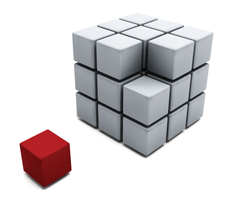Data backup for individual hosts
Going Solo

© Lead Image © Kirsty Pargeter, Fotolia.com
Sometimes you just need to back up a few directories on a computer, not administer a distributed installation or an array of disks. Areca Backup gives you hassle-free backups of individual hard drives.
Creating a safe copy of a few directories is governed by laws different from those that apply to backing up complete data centers. The tools need to be especially easy to use, without complicated configuration files or deeply nested menus. The usual space-saving techniques, such as incremental backups, should be available. Pre-and post-backup scripts should be able to stop applications like databases during the backup. Several backup versions need to be archived, and encryption and compression would not be bad.
The backup should be capable of restoring to different hardware; but, for the sake of simplicity, it would be preferable not to store the data in a proprietary format, which would necessitate reinstalling the operating system and backup software in the case of disaster. LVM or RAID configurations should not be an obstacle. File permissions need to remain intact, and the backup should not trip over links or named pipes. Finally, you should also be able to check easily whether everything went as desired.
Treat
One open source tool that satisfies all these requirements is Areca Backup [1]. Beyond the features already listed, Areca has a few more treats to offer. For example, you can include or exclude source files in or from the backup and filter by various criteria. Constructs with AND, OR, and NOT are allowed. Backups can be simulated, so that you can estimate in advance what would reach the backup disk, and to what extent, with the given settings.
[...]
Buy this article as PDF
(incl. VAT)
Buy Linux Magazine
Subscribe to our Linux Newsletters
Find Linux and Open Source Jobs
Subscribe to our ADMIN Newsletters
Support Our Work
Linux Magazine content is made possible with support from readers like you. Please consider contributing when you’ve found an article to be beneficial.

News
-
Introducing matrixOS, an Immutable Gentoo-Based Linux Distro
It was only a matter of time before a developer decided one of the most challenging Linux distributions needed to be immutable.
-
Chaos Comes to KDE in KaOS
KaOS devs are making a major change to the distribution, and it all comes down to one system.
-
New Linux Botnet Discovered
The SSHStalker botnet uses IRC C2 to control systems via legacy Linux kernel exploits.
-
The Next Linux Kernel Turns 7.0
Linus Torvalds has announced that after Linux kernel 6.19, we'll finally reach the 7.0 iteration stage.
-
Linux From Scratch Drops SysVinit Support
LFS will no longer support SysVinit.
-
LibreOffice 26.2 Now Available
With new features, improvements, and bug fixes, LibreOffice 26.2 delivers a modern, polished office suite without compromise.
-
Linux Kernel Project Releases Project Continuity Document
What happens to Linux when there's no Linus? It's a question many of us have asked over the years, and it seems it's also on the minds of the Linux kernel project.
-
Mecha Systems Introduces Linux Handheld
Mecha Systems has revealed its Mecha Comet, a new handheld computer powered by – you guessed it – Linux.
-
MX Linux 25.1 Features Dual Init System ISO
The latest release of MX Linux caters to lovers of two different init systems and even offers instructions on how to transition.
-
Photoshop on Linux?
A developer has patched Wine so that it'll run specific versions of Photoshop that depend on Adobe Creative Cloud.
